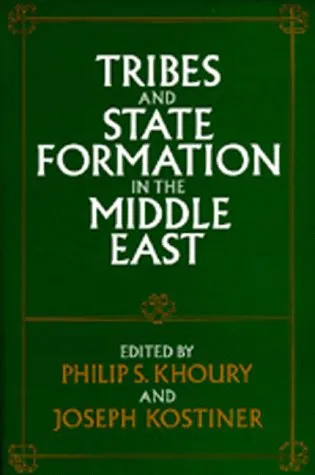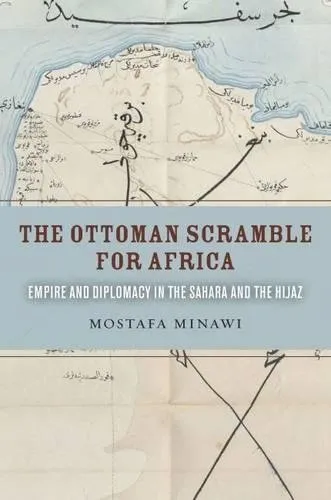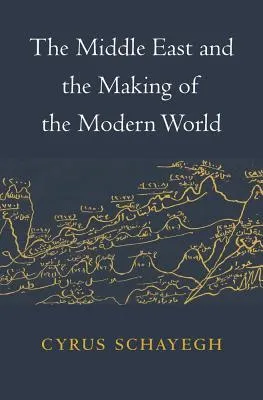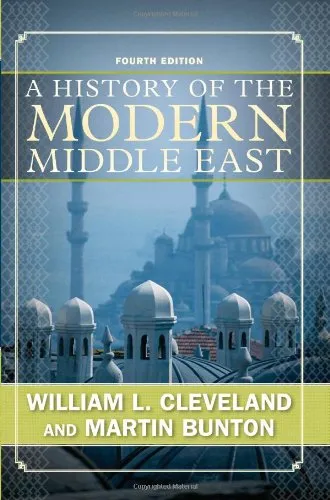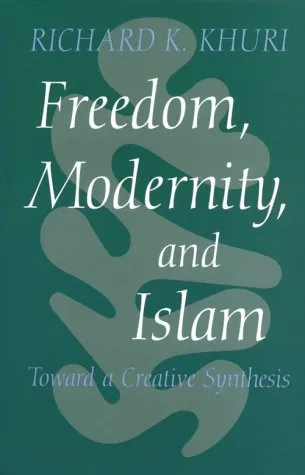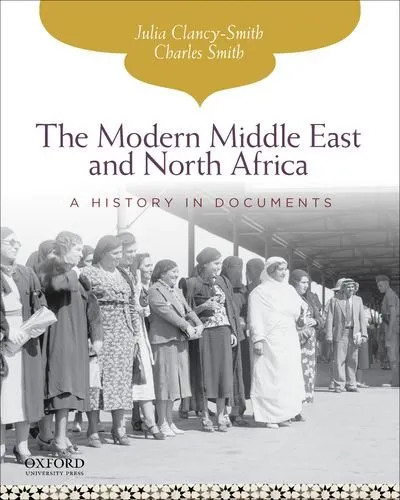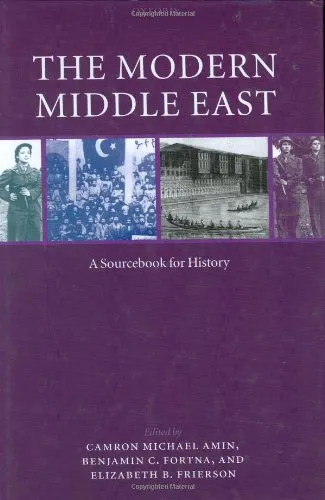Tribes and State Formation in the Middle East
4.0
بر اساس نظر کاربران

شما میتونید سوالاتتون در باره کتاب رو از هوش مصنوعیش بعد از ورود بپرسید
هر دانلود یا پرسش از هوش مصنوعی 2 امتیاز لازم دارد، برای بدست آوردن امتیاز رایگان، به صفحه ی راهنمای امتیازات سر بزنید و یک سری کار ارزشمند انجام بدینکتاب های مرتبط:
معرفی کتاب 'Tribes and State Formation in the Middle East'
کتاب 'Tribes and State Formation in the Middle East' اثری برجسته در زمینه مطالعات تاریخی و سیاسی خاورمیانه است که توسط جوزف کوستینر و فیلیپ شوکری خوری نوشته شده است. این کتاب به بررسی نقش قبایل در فرآیند تشکیل دولتها در منطقه خاورمیانه میپردازد و از دیدگاههای مختلف تاریخی و جامعهشناختی به تجزیه و تحلیل روابط پیچیده بین دولت و قبایل در این منطقه پرداخته است.
خلاصهای از کتاب
در طول تاریخ، قبایل بهعنوان یکی از عوامل کلیدی در تنظیم و تغییر ساختارهای سیاسی و اجتماعی خاورمیانه عمل کردهاند. این کتاب با تحلیلهای دقیق از موارد تاریخی و با تکیه بر دادههای مستند، نحوه تعامل قبایل با دولتها و تأثیرات متقابل آنها بر یکدیگر را بررسی میکند. نویسندگان این اثر تلاش کردهاند تا فهمی عمیقتر از نقش قبایل در شکلگیری و توسعه دولتها در خاورمیانه ارائه دهند.
نکات کلیدی
- تأثیر عمیق و مستمر قبایل در ساختارهای سیاسی و اجتماعی خاورمیانه.
- رابطه پویا و گاه متضاد بین دولتهای مدرن و ساختارهای قبیلهای.
- نحوه تطبیق و تغییر قبایل در واکنش به فشارهای سیاسی و اجتماعی.
- تاریخ طولانی نوسانات رابطه بین قبیله و دولت و تأثیر آن بر سیاستهای کنونی منطقه.
جملات معروف از کتاب
درک پیچیدگیهای روابط بین دولت و قبیله نیازمند تحلیل دقیق فراسوی مرزهای تئوریهای سادهانگارانه است.
هیچ دولتی نمیتواند بدون تعامل مستمر و دقیق با ساختارهای قبیلهای دوام یابد یا پیشرفت کند.
چرا این کتاب مهم است؟
این کتاب بهطور بینظیری نقش تاریخی و متداوم قبایل در خاورمیانه را بررسی کرده و نشان میدهد که چگونه این عوامل بر ساختارهای دولتی تأثیر گذاشتهاند. مطالعه این کتاب برای پژوهشگران علوم سیاسی، تاریخ و جامعهشناسی ضروری است. این کتاب بهویژه برای کسانی که به دنبال فهم عمیقتر از دینامیکهای اجتماعی و سیاسی خاورمیانه هستند، منبعی بسیار ارزشمند است.
Introduction to 'Tribes and State Formation in the Middle East'
The book 'Tribes and State Formation in the Middle East' presents an insightful exploration of the dynamic interplay between tribal societies and state structures in the Middle Eastern context. It delves into the historical and sociopolitical processes that have shaped the region's unique landscape, offering readers an in-depth analysis of how tribal affiliations and statecraft have co-evolved over centuries.
Detailed Summary of the Book
The book examines the fundamental aspects of tribe-state relations, emphasizing the duality of tribes as both socio-political entities and cultural frameworks deeply rooted in Middle Eastern traditions. By investigating various case studies across the region, the authors illustrate how tribes have historically both embraced and resisted state formation processes. The book is divided into thematic sections, each providing a comprehensive analysis of particular historical periods, geographic areas, or tribal associations.
Challenging conventional perceptions, the book uncovers the nuanced roles that tribes have played not only as obstacles to centralized power but also as partners in state-building efforts. The narrative outlines how the adaptive structures of tribal communities often interact with state agendas in complex ways, resulting in unique forms of governance that blend tribal customs with formal political systems.
Key Takeaways
- The persisting influence of tribal structures indicates their deep cultural and historical roots, which continue to shape modern Middle Eastern politics.
- State formation in the Middle East cannot be fully understood without acknowledging the significant role that tribes have played and continue to play in this process.
- Tribal affiliations often provide alternative sources of legitimacy and authority compared to formal state systems.
- The relationship between tribes and states is not inherently antagonistic; rather, it can be mutually beneficial under certain conditions.
Famous Quotes from the Book
"Tribes form the oldest political, social, and economic institutions known in the Middle East, serving as both building blocks of states and the centers of resistance to state control."
"Understanding the ebb and flow of tribal influence on state formation is essential to comprehending the broader historical and geopolitical contexts of the Middle East."
Why This Book Matters
In a region where modern borders often do not reflect historical or cultural realities, 'Tribes and State Formation in the Middle East' provides invaluable insights into the traditional structures that predate contemporary nation-states. By examining the intricate relationships between tribes and states, the book enhances our understanding of the ongoing challenges and complexities in Middle Eastern governance and political relations.
The book's relevance extends beyond historical interest, serving as a crucial resource for policymakers, scholars, and anyone interested in grasping the intricate social tapestry that influences current events in the Middle East. It encourages readers to consider alternative frameworks for understanding power and authority, challenging Eurocentric perspectives on statehood and governance.
دانلود رایگان مستقیم
شما میتونید سوالاتتون در باره کتاب رو از هوش مصنوعیش بعد از ورود بپرسید
دسترسی به کتابها از طریق پلتفرمهای قانونی و کتابخانههای عمومی نه تنها از حقوق نویسندگان و ناشران حمایت میکند، بلکه به پایداری فرهنگ کتابخوانی نیز کمک میرساند. پیش از دانلود، لحظهای به بررسی این گزینهها فکر کنید.
این کتاب رو در پلتفرم های دیگه ببینید
WorldCat به شما کمک میکنه تا کتاب ها رو در کتابخانه های سراسر دنیا پیدا کنید
امتیازها، نظرات تخصصی و صحبت ها درباره کتاب را در Goodreads ببینید
کتابهای کمیاب یا دست دوم را در AbeBooks پیدا کنید و بخرید
1666
بازدید4.0
امتیاز0
نظر98%
رضایتنظرات:
4.0
بر اساس 0 نظر کاربران
Questions & Answers
Ask questions about this book or help others by answering
No questions yet. Be the first to ask!
